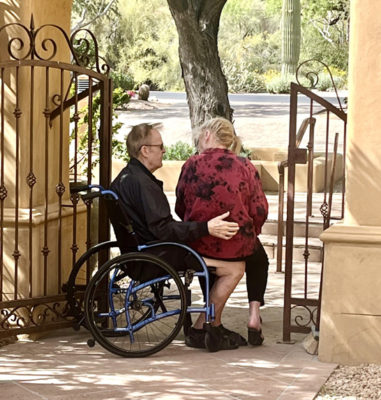Caregiver burnout is something that family caregivers have experienced for centuries. It ties in with compassion fatigue, a phrase often used to describe the stress that results from a traumatized individual, rather than the trauma itself. This intense state of tension or excessive preoccupation makes many feel pains from the cognitive, physical, psychological, and emotional parts of the body.
While many may have not heard of the terms ‘’caregiver burnout’’, or ‘’compassion fatigue’’, we can assure you that they are very real issues that we all need to acknowledge in order to be able to help, especially in today’s world.
Compassion Fatigue and COVID-19
With the COVID-19 pandemic taking its toll in every corner of the globe, it now becomes more important than ever to become more and more aware of this problem as family caregivers continue to battle with the ups and downs of the pandemic.
Let’s face it, our family caregivers are absolutely exhausted. Physically, emotionally, psychologically. So much so, that eventually, it’s going to become so difficult for them to care for others when they just can’t care for themselves. They feel overtired, overworked, and fed up – but they keep pushing.
The worst part of it all? The compassion fatigue doesn’t stop when they have finished caregiving. No, it continues. Every single time they turn on the TV, when they scroll through their social media channels on their phone, there it is – the news of the COVID-19 crisis. It’s leading many out there to feel like there is simply no escape.
You’ll never find a family caregiver with a cape on, but we can assure you, they are nothing less than a hero. Between caring for seniors, working remotely, and caring for the family, they put themselves more and more at risk of compassion fatigue. And let’s face it, even superheroes need a break every once in a while. Right?
So, what can we do to help? How do we prevent compassion fatigue and caregiver burnout?
How to Prevent Compassion Fatigue & Caregiver Burnout
First things first, it’s vital to remember that caregiving throughout the pandemic is a marathon, not a sprint. If family caregivers pace themselves and use the correct self-care tools, they’re able to survive even the darkest days.
Now that you know what to look for, here are some tips to help you pre-empt caregiver burnout.
- Stay informed about the pandemic in your area, but don’t overwhelm yourself – It’s important to stay up to date, but you shouldn’t overdo it. Pandemic news can be daunting, try to limit your intake.
- Look after yourself – As a family caregiver, your patient’s well-being relies on your ability to stay mentally and physically healthy. Do some yoga, meditation, eat healthily, get enough sleep, and watch for signs of caregiver burnout.
- Relax, take it easy – Being a family caregiver is a major responsibility. However, it shouldn’t overtake your life. Take moments out and listen to your favourite music, read, or partake in your hobby.
- Stay connected – You must remember, social distancing doesn’t mean total isolation. You can still reach out to your friends and family, spend time together virtually and watch a movie, play games, help and support each other through the power of fun.
Our world may look extremely different right now, however, it’s so important to be patient with yourself. Create new routines and add activities that bring you joy or allow you to feel rejuvenated.

